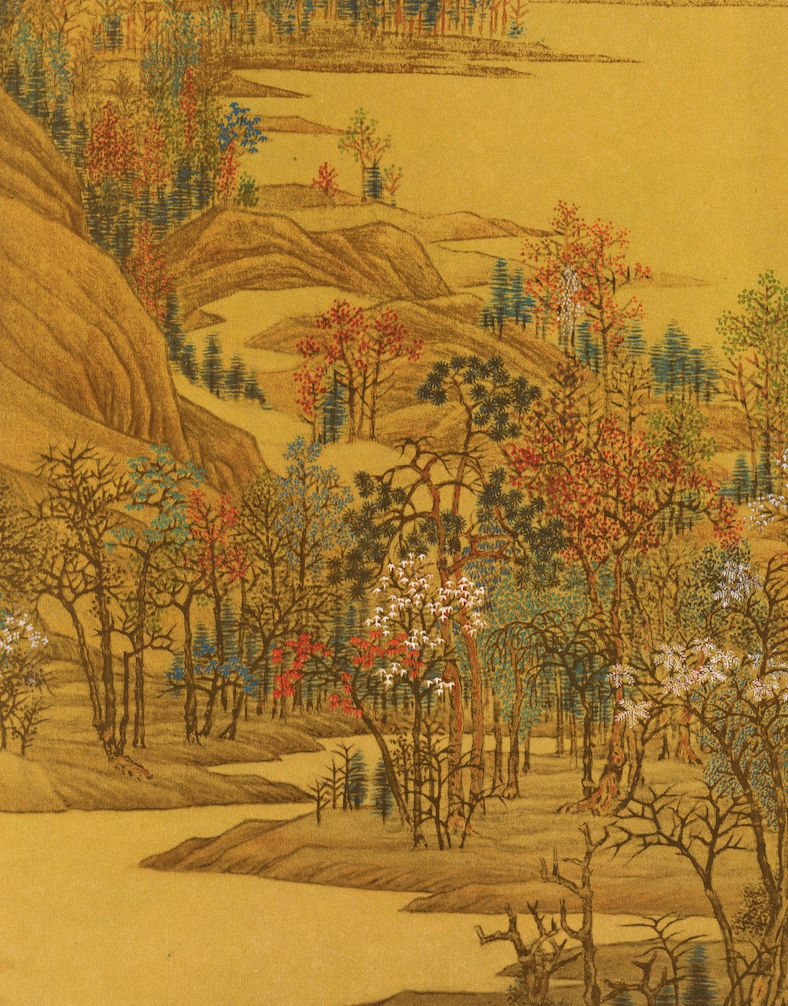Dong or 董 - The Roots of Chinese Surnames: Exploring Heritage and History
- ChinaFetching

- Mar 28, 2025
- 3 min read
The surname Dong (董) carries a rich and storied past, blending the romance of myth with the weight of historical legacy.
For thousands of years, it has been borne by individuals whose stories echo across the vast expanse of Chinese history.
From legendary dragon tamers to esteemed royal historians, the origins of this surname reveal the depth of China’s cultural heritage.

The Legend of Dongfu: The Dragon Tamer
One of the most well-known origins of the Dong surname traces back to Dongfu, a descendant of Emperor Zhuanxu.
In the distant past, when the world was newly formed and all beings thrived, Dongfu possessed an extraordinary understanding of Loong—the Chinese Dragon.
Recognizing his rare gift, he was appointed as the Huanlong (豢龙)(Loong Tamer), responsible for raising and taming these celestial creatures.
Ancient legends describe dragons as noble beings, refusing to drink from anything but the purest springs and only resting in sacred lands.

Determined to care for them, Dongfu embarked on a long and arduous journey, traveling across mountains and rivers in search of the perfect spring.
Finally, in a secluded valley, he discovered a crystal-clear spring with water so sweet it was said to rival the nectar of the heavens.
There, Dongfu established a sanctuary for the dragons, nurturing them with unparalleled care and even teaching them to perform elegant dances.
According to legend, these dragons once danced before Emperor Shun (about 2294 BC—2184 BC), their movements as graceful as celestial omens.
The emperor was so awestruck by the sight that he rewarded Dongfu with the land surrounding the sacred spring and bestowed upon him the surname "Dong."
From that moment on, his descendants carried this name, passing it down through generations.

The Dong Surname in Historical Records
While Dongfu’s story is steeped in mythology, another prominent branch of the Dong family finds its origins in historical records.
This lineage can be traced back to the descendants of the Xia (about 2070 BC — 1600 BC) royal family, who later served in the Zhou Dynasty (1046 BC — 256 BC) as royal historians.
Entrusted with the sacred duty of recording historical events, they meticulously documented the rise and fall of dynasties, preserving the legacy of the ruling families.
During the Spring and Autumn Period (770 BC — 403 BC), two prominent members of this lineage held prestigious positions in the state of Jin, overseeing the kingdom’s archives and historical records.
Due to their esteemed status, they were respectfully referred to as Dongdu (董督) (Supervisor Dong) or Dongshi (董史) (Historian Dong).
Over time, their descendants inherited these titles and eventually adopted "Dong" as their surname, solidifying another branch of the family’s legacy.

The Enduring Legacy of the Dong Surname
The Dong surname embodies both the enchanting essence of mythology and the weight of historical tradition.
These two lineages—one born from the legendary taming of dragons, the other from the meticulous work of royal historians—intertwined over centuries, shaping a surname that has endured through the ages.
Throughout Chinese history, countless notable figures bearing the Dong surname have emerged, leaving their mark in philosophy, politics, military strategy, literature, art, and science.
Today, Dong remains one of the most common surnames in China, with descendants spread across the world.
Despite the centuries that have passed, those who carry the name continue to uphold the wisdom and honor of their ancestors, writing new chapters of the Dong legacy in the modern era.




